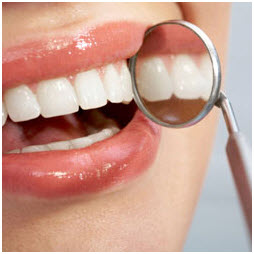Dental - Services
Gum Treatment
Gum Treatment is the treatment of active gum and jaw bone diseases. Gum disease treatment can slow or stop the progression of gum disease. Since there are different stages of gum disease (from gingivitis, the inflammation of the gum, to advanced periodontitis, the inflammation of surrounding structures of the tooth), there are different levels of treatment. In some cases, the patient may be referred to a specialist.
Periodontal disease is an infection of the tissues that support your teeth. Your gum tissue is not attached to the teeth as high as it may seem. There is a very shallow v-shaped crevice called a sulcus between the tooth and gums. Periodontal diseases attack just below the gum line in the sulcus, where they cause the attachment of the tooth and its supporting tissues to break down. As the tissues are damaged, the sulcus develops into a pocket: generally, the more severe the disease, the greater the depth of the pocket.
Periodontal diseases are classified according to the serverity of the disease. The two major stages are gingivitis and periodontitis. Gingivitis is a milder and reversible form of periodontal disease that only affects the gums. Gingivitis may leaed to more serious, destructive forms of periodontal disease called periosontitis.
Some factors increase the risk of developing periodontal disease:
- Tobacco smoking or chewing
- Systemic diseases such as diabetes
- Some types of medication such as steroids, some types of anti-epilepsy drugs, cancer therapy drugs, some calcium channel blockers and oral contraceptives
- Bridges that no longer fit properly
- Crooked teeth
- Fillings that have become defective
- Pregnancy or use of oral contraceptives
Several warning signs that can signal a problem:
- Gums that bleed easily
- Red, swollen, tender gums
- Gums that have pulled away from the teeth
- Persistent bad breath or bad taste
- Permanent teeth that are loose or separating
- Any change in the way your teeth fit together when you bite
- Any change in the fit of partial dentures

Dentist@51©2005
1499/1 Sukumvit Rd. (between soi 67 - 69),Prakanong Nua, Wattana, Bangkok 10110,THAILAND.
Tel.&Fax + 66 2 714 0405, + 66 2 714 0406
Mobile + 66 8 6 312 6852
@LINE ID : @bangkokdentalteam
Facebook : http://www.facebook.com/BangkokDentalTeamDentalClinic
Map , E-mail: BangkokDentalTeam@gmail.com or dentist51@gmail.com

